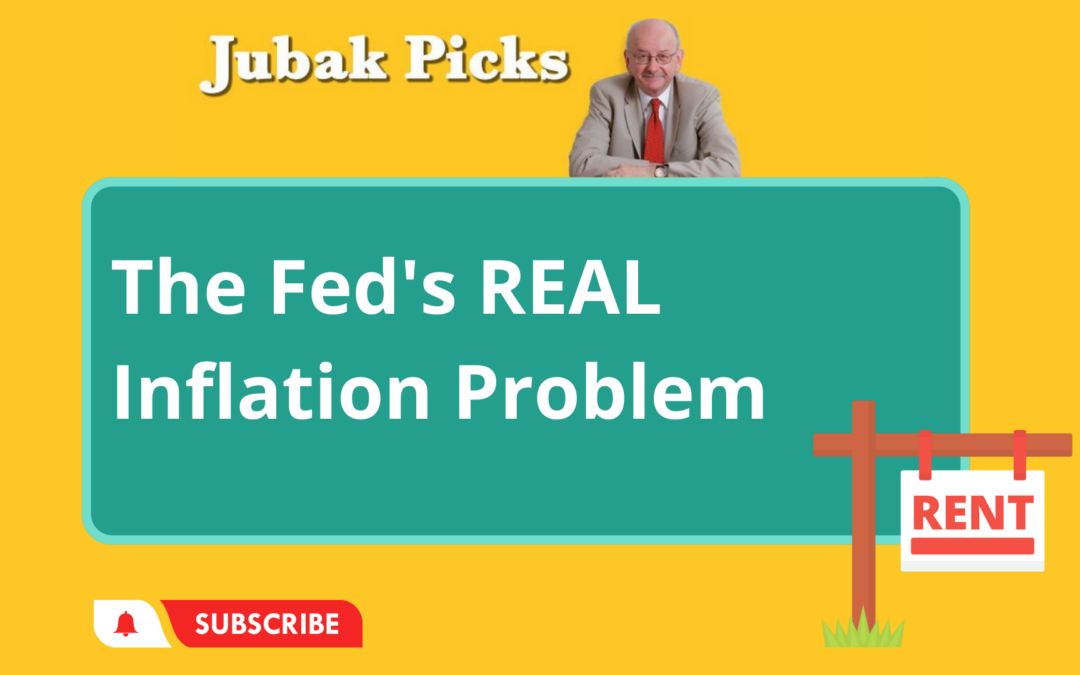
November 1, 2022 | Daily JAM, Morning Briefing |
The JOLTS survey from the Department of Labor showed a big jump in job openings in September. Which raised market worries that the Fed will raise interest rates tomorrow, November 2, by a hefty 75 basis points and signal that it is farther away from a pivot toward lowering interest rates than this recent rally has hoped. The Job Openings and Labor Turnover Survey showed that the number of available positions climbed to 10.7 million in September from a revised 10.3 million in August. Economists surveyed by Bloomberg were looking for a drop to 9.8 million openings.

October 28, 2022 | Daily JAM, Morning Briefing |
Inflation as measured by the Personal Consumption Expenditures index, the Federal Reserve’s favorite inflation guide, rose at an annual rate of 6.2% in September, according to data released today, October 28. The core index, which excludes more volatile prices for food and energy, rose at an annual rate of 5.1%. The month-to-month gain in the overall PCE was 0.3% and the core index climbed a month-to-month 0.5%.

October 19, 2022 | Daily JAM, Morning Briefing |
The two-day bounce in U.S. stocks stalled today. The Standard & Poor’s 500 closed down 0.67% and the NASDAQ Composite was down 0.40%. Why? Increased sentiment that the Federal Reserve will raise its target short-term interest rate by a hefty 75 basis points at its November 2 meeting and its December 14 session. While the 75-basis-point increase at the November 2 meeting has been expected for some time, the shift in sentiment for the December 14 meeting is new.

October 14, 2022 | Daily JAM |
After climbing 2.60% yesterday, the Standard & Poor’s 500 fell 2.37% today. Same story with the Dow Jones Industrial Average–up 2.83% yesterday, but down 1.34% today. And the NASDAQ Composite–up 2.23% yesterday and down 3.08% today. And the small-cap Russell 2000–up 2.41% yesterday and down 2.66% today.

October 13, 2022 | Daily JAM, Morning Briefing |
After Thursday’s surprising and disappointing higher-than-expected CPI inflation number stocks rallied–but bond prices sank and bond yields rose on expectations that higher inflation means faster interest rate increases from the Federal Reserve. How much higher?

October 12, 2022 | Daily JAM |
Economists surveyed by Bloomberg are looking for core inflation, that is inflation without volatile food and energy prices, to return to a four-decade high in tomorrow’s report of CPI inflation in September. Projections are looking for a 0.4%increase n core inflation in September and an annual rate of increase of 6.5%. That would match the March rate that was the highest since 1982. About a third of economists in the Bloomberg survey, however, expect an annual rate of 6.6% or more. The economists in the survey do expect a decline in headline (that is, all items) inflation to an 8.1% annual rate.

October 9, 2022 | Daily JAM |
Thursday’s CPI inflation report for September will overshadow everything else scheduled for this week, including the beginning of earning season. The report is so important because the financial markets continue to look for clues on how many more times the Federal Reserve will raise interest rates and how soon the central bank might begin to cut rates. For investors, the report is especially challenging because 1) there’s the task of getting the numbers right, and 2) there’s the question of how the market will react to those numbers.

October 1, 2022 | Daily JAM, Special Reports |
Today, October 1, I’ve gone back through this Special Report to update any parts of my calendar in light of what we’ve learned about the economy, about Federal Reserve interest rate policy, and about the global economy in the last few weeks. This update includes my take on the August jobs report and the September 21 meeting of the Fed. (It’s a complete revision of the original so changes are in the body of the original text.) It is different this time. And it’s likely to “be different this time” for the next five years or so. And you need an investment strategy for that period.

September 21, 2022 | Daily JAM |
At today’s meeting of the Federal Open Market Committee, the U.S. central bank raised interest rates by 75 basis points for a third straight meeting. That took the Fed’s short-term benchmark rate to a range of 3% to 3.25%. This move was widely expected with the CME FedWatch Tool giving odds of 84% yesterday on a 75 basis point increase. What the market hadn’t expected was how negative the Fed’s projections in its Dot Plot would be. To sum up: Higher interest rates (with more rate increases) for longer. And very low economic growth but no recession.

September 14, 2022 | Daily JAM, Videos |
My one-hundred-and-seventy-fifth YouTube video: “The Fed’s Real Inflation Problem” went up today. The CPI numbers came out and they were disappointing with Inflation running at an 8.3% annual rate in August. But the inflation problem is worst than the headline numbers indicate. Shelter, the single biggest component of the CPI inflation rate, was up by the most in August since 1991. And the Federal Reserve has very little ability to lower a runaway inflation rate in rents using its usual methods of raising interest rates and curbing growth in the money supply. That means the process of controlling inflation is going to be slow and difficult.

September 14, 2022 | Daily JAM, Morning Briefing |
Investors and traders have decided not to panic today. Which certainly wasn’t the case yesterday. I’ll leave it to you to decide if a 5.54% drop in the NASDAQ 100 is a measured reaction to inflation running 20 basis points hotter than projected. (Amazon (AMZN) fell 3.06%, Apple (AAPL) was down 5.87%, Applied Materials (AMAT) was lower by 6.14%, and Nvidia (NVDA) plunged 9.47%.) But I sure caught a whiff of panic in Wall Street calls for the Federal Reserve to raise interest rates by a full 1.00%–and not the widely anticipated–0.75% at the September 21 meeting of the Open Market Committee.

September 13, 2022 | Daily JAM, Morning Briefing |
Stocks plunged today as the Consumer Price Index inflation measure came in above economist expectations and market hopes.
Headline CPI inflation ran at an 8.3% annual rate in August. That was down from the 8.5% annual rate in July and the 9.1% annual rate in June. But above the 8.1% annual rate forecast by economists.
On the news, stocks fell steeply with the Standard & Poor’s 500 down 4.32% for the day and the Dow Jones Industrial Average off 3.94%. The NASDA Composite fell 5.16% and the NASDAQ 100 plummeted y 5.54%. The small-cap Russell 2000 was down 3.91%. I think that within a few days the reaction is likely to strike investors as excessive. The trend in inflation did still point down and it increasingly looks like June’s 9.1% in the peak. And while the hotter-than-expected inflation rate did just about guarantee that the Federal Reserve will raise interest rates by 75 basis when it meets on Wednesday, September 21, most of Wall Street had already concluded that a 75 basis-point move was locked in. So what’s the hubbub, Bub?











